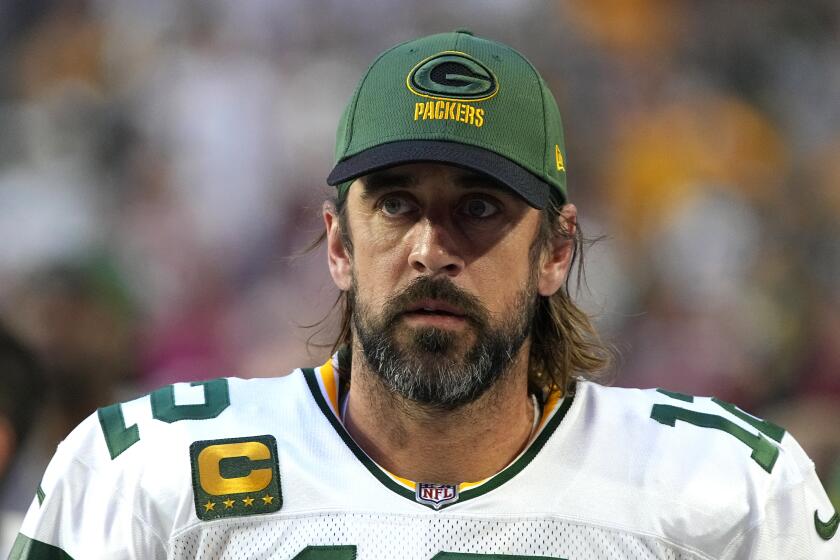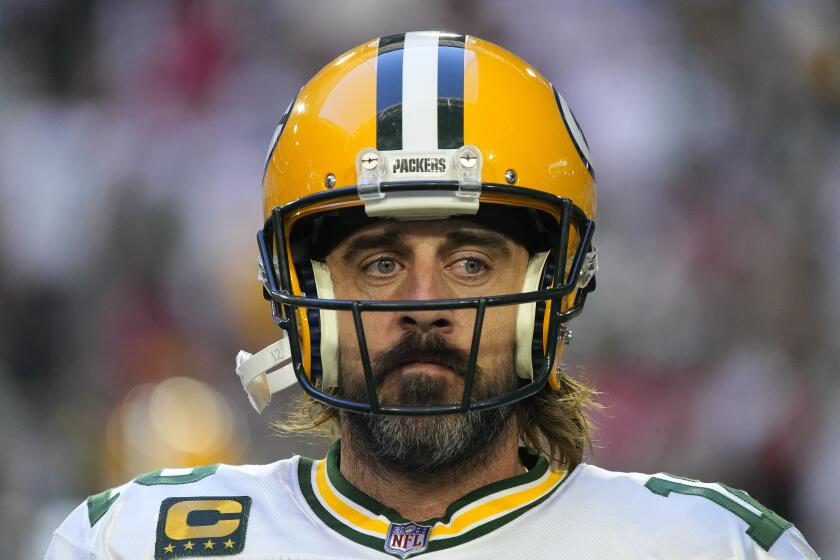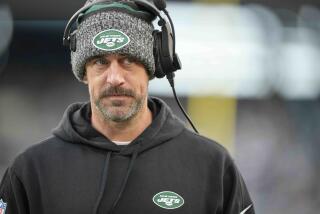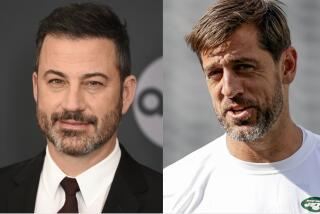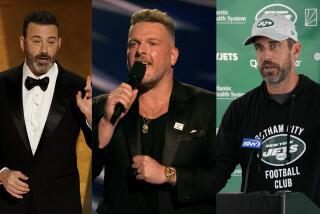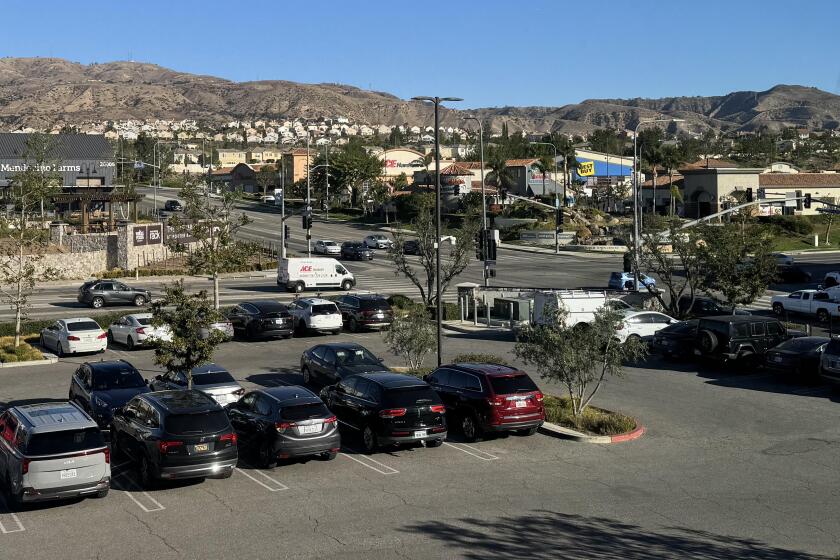Packers QB Aaron Rodgers has COVID-19. He explains why he chose not to get vaccinated
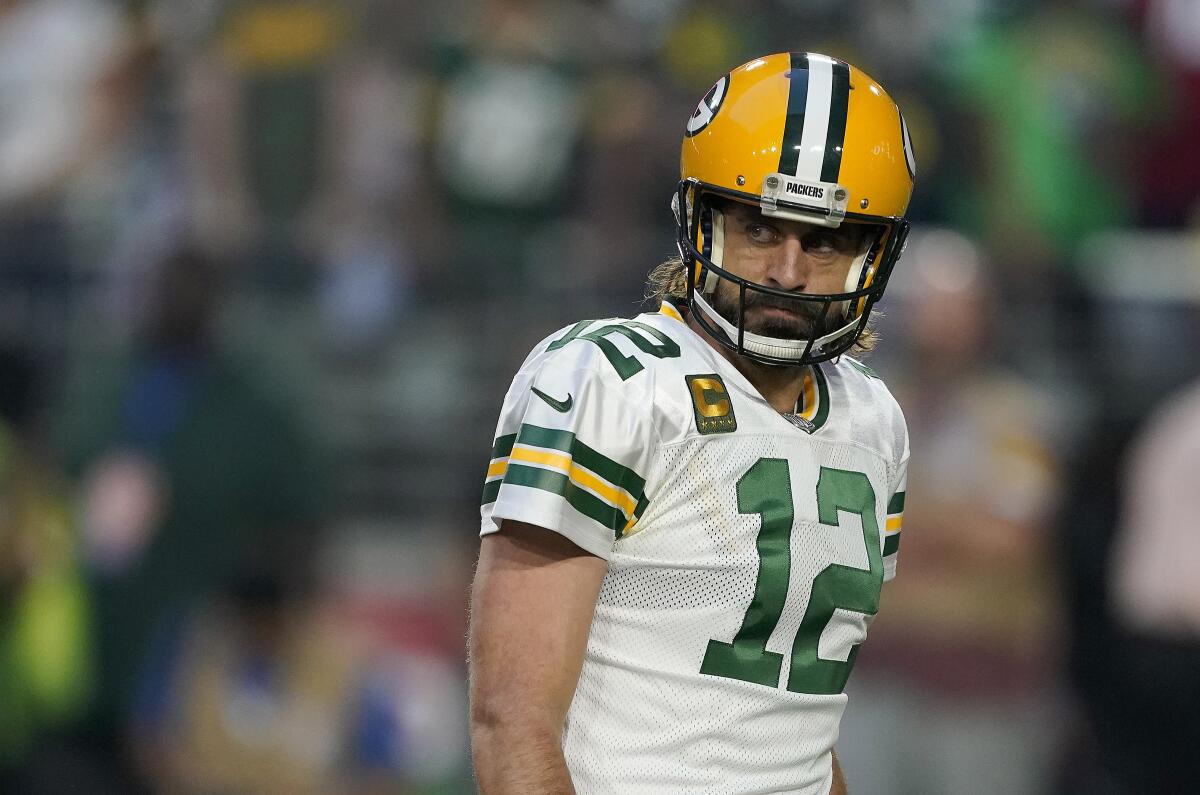
- Share via
Aaron Rodgers has not been vaccinated against COVID-19 but says he wasn’t lying when he told reporters he was “immunized” before the start of the NFL season.
The Green Bay Packers quarterback is in the league’s COVID protocol after what he called a “possible positive” and will not play Sunday against the Kansas City Chiefs. He must stay isolated for at least 10 days because he has not been vaccinated.
Using phrases like “witch hunt,” “cancel culture,” “woke mob” and “propaganda narrative,” Rodgers appeared Friday on the “Pat McAffee Show” to “set the record straight on so many of the blatant lies that are out there about myself right now.”
Rodgers, who said he is feeling “really well,” first addressed that initial conversation with reporters, saying he would have clarified what he meant if only someone had asked.
“It wasn’t some sort of ruse or lie, it was the truth ...” Rodgers said. “Had there been a follow up to my statement that I had been immunized, I would have said, ‘Look, I’m not some sort of anti-vax flat-earther. I am somebody who’s a critical thinker.’
“You guys know me, I march to the beat of my own drum. I believe strongly in bodily autonomy and the ability to make choices for your body, not to have to acquiesce to some woke culture or crazed group of individuals who say you have to do something.”
Devastation and disappointment are the emotions one Green Bay Packers fan feels when she learns Aaron Rodgers isn’t vaccinated.
Rodgers said he is allergic to an ingredient in the Pfizer and Moderna vaccines and that his medical team advised him that “the danger I’d be in to get an adverse event” from the Johnson & Johnson vaccine “was greater than the risk of getting COVID and recovering.”
“So then my options became, ‘OK, what can I do to protect myself and my teammates if there’s not one of the big three options for me in my own body,’” said Rodgers, who said that the Packers organization and all of his teammates were aware of his status.
Rodgers said he went with what he described as “a long-term protocol that involved multiple months” and that’s “been around for centuries and the doctors that I consulted with have been doing this for decades.”
“The specific protocol, I’m going to keep between me and my doctors,” he said, “but it was a way to stimulate my immune system to create a defense against COVID.”
He said he petitioned the NFL to be considered vaccinated under the league’s protocol. That was denied, and so was his appeal of that decision.
Why didn’t the NFL do more to protect Aaron Rodgers’ teammates and apply restrictions to the MVP quarterback? Because the show must go on.
Rodgers said he’s been living life as an unvaccinated player, at least for the most part, even though that involves adhering to “some draconian measures and protocols.”
“Some of the rules to me are not based on science at all. They’re based purely on trying to out and shame people,” he said. “Like needing to wear a mask at a podium when every person in a room is vaccinated and wearing a mask makes no sense to me. ...
“I have followed every single protocol to a T, minus that one I just mentioned that makes no sense to me.”
He added: “The great MLK said, ‘You have a moral obligation to object to unjust rules and rules that make no sense.’ ”
Rodgers said he had been tested more than 300 times before testing positive and feels confident he contracted the virus from a vaccinated person since those are the people he’s around the most.
“Because of this virus and testing positive, I have to miss 10 days — again, the scientifics to that arbitrary number is whatever,” Rodgers said. “I feel really good and if this was the flu, there’s no reason I wouldn’t play on Sunday. ... I hope that we can take a step back with lying, with the witch hunt and the canceling, and realize this is a conversation to be had, not a controversy. And let’s move this forward with some love and connection.”
More to Read
Go beyond the scoreboard
Get the latest on L.A.'s teams in the daily Sports Report newsletter.
You may occasionally receive promotional content from the Los Angeles Times.
